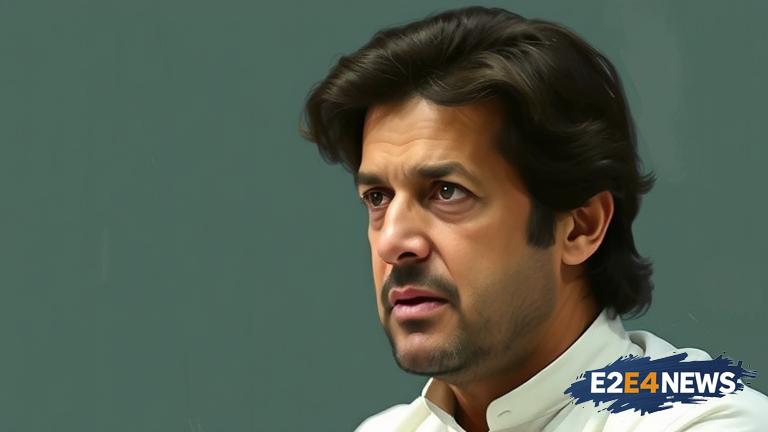Imran Khan, the former Prime Minister of Pakistan, is currently being detained in a jail cell, and his son has come forward to claim that he is being kept in poor conditions. The news has sparked widespread outrage and concern among Khan’s supporters and human rights activists. Khan’s son, who recently visited his father in jail, revealed that the former PM is being subjected to harsh treatment, including being kept in a small, cramped cell with limited access to basic amenities. The cell, according to the son, is devoid of even the most basic necessities, such as a bed or a toilet. Khan’s family and supporters have expressed deep concern over his well-being, citing the poor conditions as a threat to his health and safety. The former PM has been in detention since his arrest earlier this year, and his supporters have been protesting his detention, calling it a politically motivated move. The government, however, has maintained that Khan’s detention is lawful and that he is being treated in accordance with the law. Despite this, Khan’s son has alleged that his father is being singled out and subjected to unfair treatment. The poor conditions in which Khan is being kept have raised questions about the state of Pakistan’s prison system and the treatment of political prisoners. Human rights activists have long criticized the country’s prisons for being overcrowded and unsanitary, with inadequate access to food, water, and medical care. The situation has been exacerbated by the fact that many prisoners, including Khan, are being kept in solitary confinement, which can have severe psychological and physical effects. Khan’s detention has also sparked a heated debate about the role of politics in Pakistan’s justice system. Many have accused the government of using the law to silence opposition voices and consolidate power. The situation has been further complicated by the fact that Khan’s party, the Pakistan Tehreek-e-Insaf (PTI), has been at odds with the current government, led by Prime Minister Shehbaz Sharif. The PTI has accused the government of trying to discredit and undermine Khan’s popularity, which remains high despite his ouster from power. As the situation continues to unfold, Khan’s supporters are calling for his immediate release and an end to what they see as his unjust detention. The international community has also been watching the situation closely, with many expressing concern over the treatment of Khan and the state of democracy in Pakistan. The country has a long history of political instability and military intervention, and the current situation has raised fears of a return to authoritarian rule. Despite the challenges, Khan’s supporters remain hopeful that he will be released soon and that justice will be served. The former PM’s popularity remains high, and his party continues to be a major force in Pakistani politics. As the situation continues to evolve, one thing is clear: the detention of Imran Khan has sparked a major crisis in Pakistan, with far-reaching implications for the country’s politics, human rights, and democracy. The international community will be watching closely to see how the situation unfolds and whether Khan will be released soon. In the meantime, his supporters will continue to protest and call for his release, citing the poor conditions in which he is being kept as a major concern. The situation has also raised questions about the role of the military in Pakistani politics and the extent to which it is involved in the current crisis. As the crisis deepens, it remains to be seen how the situation will be resolved and what the implications will be for Pakistan’s democracy and human rights.
